foundations of sport and exercise psychology pdf
Sport and exercise psychology examines behaviors in sports and exercise, studying psychological factors influencing performance and behavior. It combines theory with practical insights, covering motivation, personality, and group dynamics, offering a comprehensive understanding for students and professionals alike, linking research to real-world applications.
Definition and Scope
Sport and exercise psychology is the scientific study of psychological factors influencing behaviors in sports and exercise contexts. It examines how mental processes, emotions, and social interactions impact physical performance and overall well-being. The scope includes understanding motivation, personality traits, stress, anxiety, and group dynamics, providing insights into enhancing performance and promoting mental health. This field bridges theory and practice, offering practical applications for athletes, coaches, and individuals engaged in physical activity.
Importance of Psychological Factors in Sports and Exercise
Psychological factors significantly influence performance and participation in sports and exercise. They determine motivation, resilience, and overall enjoyment, impacting both physical and mental well-being. Understanding these factors helps athletes optimize their training, build confidence, and manage stress, enhancing their ability to perform under pressure. Additionally, psychological strategies improve team dynamics and communication, fostering a more supportive environment. Addressing these elements is crucial for achieving peak performance and maintaining a lifelong commitment to physical activity and health.
History and Development of Sport and Exercise Psychology
Sport and exercise psychology emerged as a distinct field in the 20th century, evolving from psychology and physical education. Its growth is marked by research advancements and the establishment of key theories and practices that continue to shape the discipline today.
Origins and Evolution of the Field
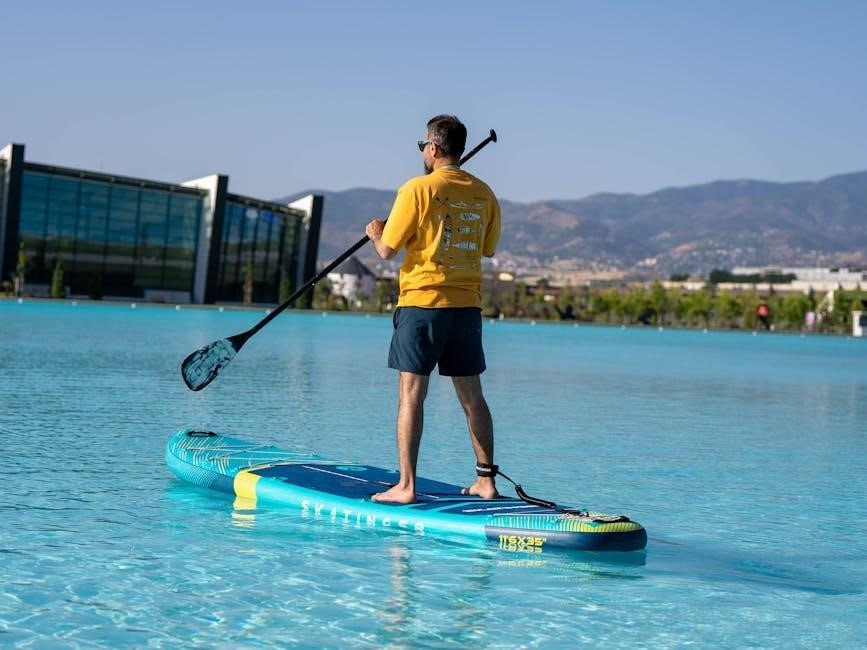
The origins of sport and exercise psychology trace back to the early 20th century, emerging from psychology and physical education. Early researchers like Coleman Roberts Griffith laid the groundwork, while the 1960s marked the field’s formal establishment with organizations like the International Society of Sport Psychology. The discipline evolved to include exercise psychology, focusing on mental health benefits. Over time, it expanded to address motivation, anxiety, and group dynamics, becoming a vital area for enhancing performance and well-being in sports and physical activity.
Key Contributors and Their Contributions
Robert S. Weinberg and Daniel Gould are prominent contributors, authoring foundational texts like Foundations of Sport and Exercise Psychology. Weinberg’s work on motivation and anxiety, and Gould’s research on youth sports and leadership, have significantly shaped the field. Other pioneers, such as Coleman Roberts Griffith, laid the groundwork with early studies on athletic performance. Their contributions have bridged theory and practice, advancing understanding of psychological factors in sports and exercise, influencing both academic and applied domains.
Psychological Factors Influencing Performance
Psychological factors such as motivation, arousal, stress, anxiety, and personality traits significantly impact athletic performance, shaping behavior and outcomes in sports and exercise contexts.
Motivation in Sports and Exercise

Motivation is a critical factor in sports and exercise, driving individuals to initiate and maintain physical activity. It can be intrinsic (e.g., personal satisfaction) or extrinsic (e.g., rewards or recognition). Understanding motivational states helps athletes and coaches optimize performance. Factors like goal-setting, self-efficacy, and coaching styles significantly influence motivational levels. High motivation enhances persistence, effort, and overall performance outcomes, making it essential for achieving success in both competitive and recreational settings. Recognizing individual differences in motivational drivers is key to fostering engagement and sustained participation.
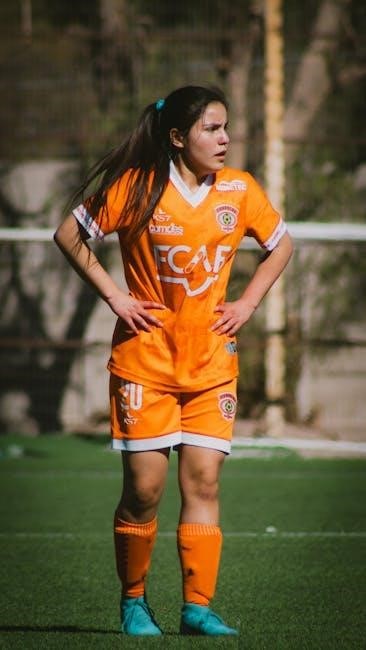
Arousal, Stress, and Anxiety in Athletic Settings
Arousal, stress, and anxiety are psychological states that significantly impact athletic performance. Arousal refers to the body’s physiological activation, which can enhance or impair performance depending on its intensity. Stress arises from perceived pressure, while anxiety often stems from fear of failure or uncertainty. Chronic stress and heightened anxiety can lead to decreased focus, reduced motor skills, and burnout. Effective coping strategies, such as relaxation techniques and cognitive-behavioral interventions, help athletes manage these factors, optimizing their performance and mental well-being in competitive environments.
Personality Traits and Their Impact on Performance
Personality traits significantly influence athletic performance by shaping behaviors, attitudes, and responses to challenges. Traits like extroversion, conscientiousness, and openness to experience often enhance resilience and adaptability. For instance, athletes high in conscientiousness tend to adhere better to training regimens, while extroverts may excel in team dynamics. Conversely, traits such as neuroticism can increase susceptibility to anxiety, potentially hindering performance. Understanding these traits helps in tailoring interventions to optimize individual and team success, fostering a harmonious and effective athletic environment.
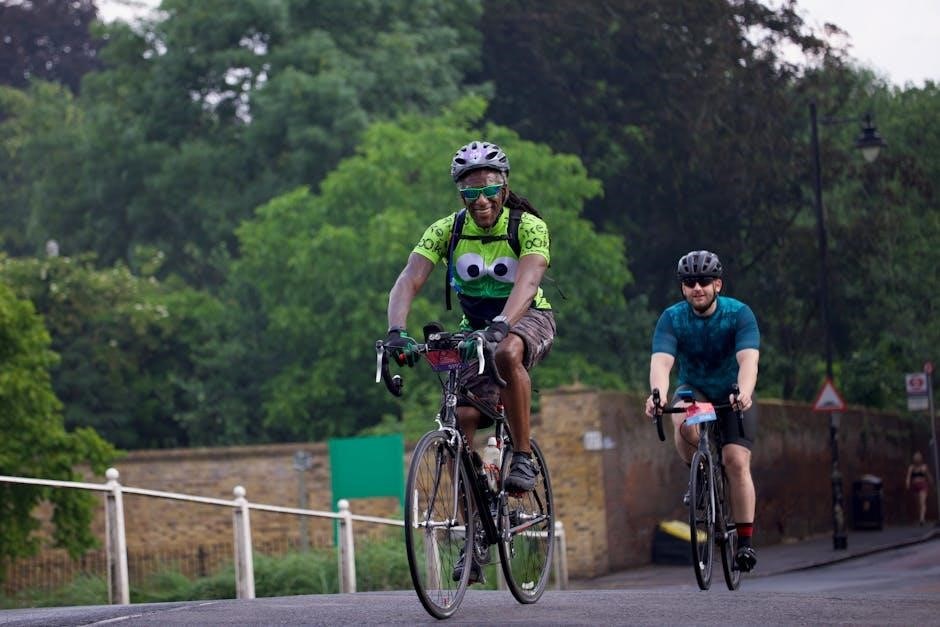
Group Dynamics in Sports
Group dynamics in sports encompass team cohesion, communication, and collaboration, significantly influencing performance and satisfaction. Leadership roles and social interactions shape the collective success and overall team dynamics effectively.
Team Cohesion and Communication
Team cohesion and effective communication are crucial for optimal performance in sports. Cohesion refers to the bonds and unity among team members, fostering collaboration and shared goals. Open communication enhances trust, clarifies roles, and ensures alignment in strategies. Leaders play a vital role in promoting these dynamics, while social interactions and mutual respect strengthen team morale. The combination of cohesion and communication creates a supportive environment, enabling teams to overcome challenges and achieve collective success, as highlighted in foundational texts like Foundations of Sport and Exercise Psychology.
Leadership Roles and Their Psychological Effects
Leadership roles significantly influence team dynamics and individual performance in sports. Effective leaders foster motivation, confidence, and resilience, while poor leadership can lead to dissatisfaction and underperformance. Coaches and captains often serve as formal leaders, guiding strategy and behavior. Informal leaders emerge naturally, impacting group morale and cohesion. Leadership styles, such as transformational or autocratic, shape psychological outcomes, including anxiety reduction and stress management. The psychological effects of leadership are critical in building a positive team culture and enhancing overall performance, as explored in foundational texts on sport psychology.

Mental Skills Training in Sports
Mental skills training enhances athletic performance through techniques like goal setting, visualization, and self-talk. These strategies improve focus, confidence, and resilience, optimizing both mental and physical abilities in sports.
Goal Setting and Visualization Techniques
Goal setting involves defining specific, measurable objectives to enhance performance and motivation. Visualization techniques, such as mental rehearsal, help athletes imagine successful outcomes, improving focus and confidence. These strategies, supported by research in sport psychology, enable individuals to prepare mentally for challenges, fostering resilience and optimal performance. According to Weinberg and Gould, such mental skills training is essential for achieving peak performance and maintaining psychological well-being in sports. These techniques are widely discussed in foundational texts like “Foundations of Sport and Exercise Psychology” as key tools for mental preparation.
Self-Talk and Confidence Building Strategies
Self-talk involves using positive affirmations to enhance focus and resilience, while confidence-building strategies help athletes maintain belief in their abilities. These techniques, discussed in “Foundations of Sport and Exercise Psychology”, empower individuals to manage pressure and maintain psychological well-being. By fostering a positive mindset, athletes can optimize their performance and adapt to challenges effectively, ensuring sustained success in their pursuits. These strategies are essential for mental preparation and are widely recognized in sport psychology as key tools for performance enhancement.
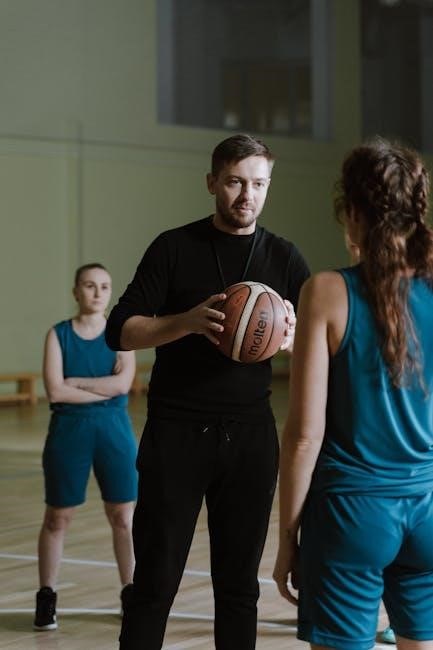
The Role of Feedback in Performance Enhancement
Feedback is crucial for improving performance, guiding improvements, and reinforcing positive behaviors. It enhances learning, skill development, and overall effectiveness in sports and exercise settings, as detailed in “Foundations of Sport and Exercise Psychology”.
Types of Feedback and Their Effects
Feedback in sports and exercise can be intrinsic or extrinsic, positive or negative, and concurrent or terminal. Intrinsic feedback is internal, such as feeling satisfied after a good performance, while extrinsic feedback comes from external sources like coaches or teammates. Positive feedback reinforces desired behaviors, enhancing confidence and motivation, whereas negative feedback highlights areas for improvement. Concurrent feedback is provided during performance, aiding real-time adjustments, while terminal feedback is given afterward, helping to evaluate outcomes. Each type has distinct effects on learning, performance, and psychological states, as outlined in “Foundations of Sport and Exercise Psychology”.
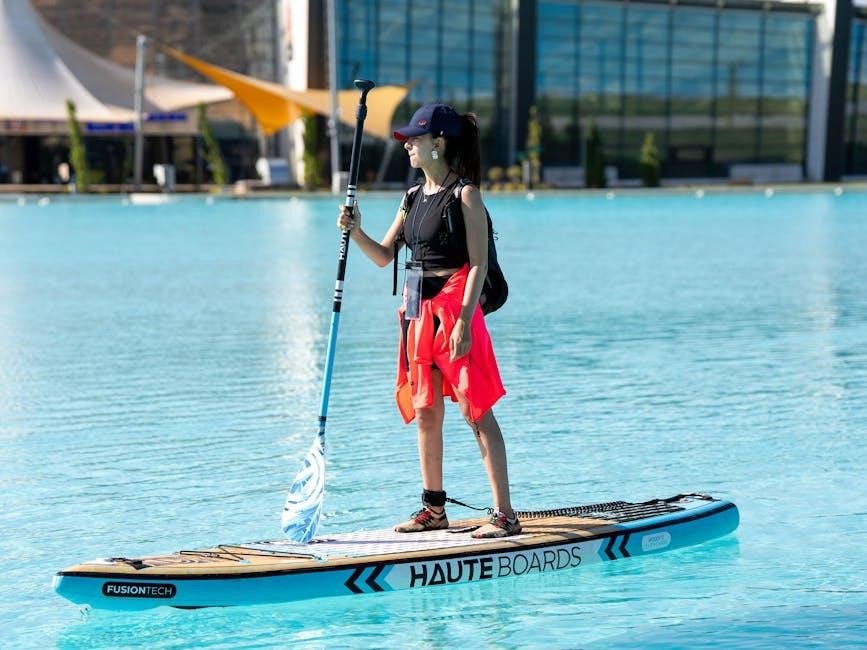
Effective Feedback Delivery Methods
Effective feedback delivery involves clear, specific, and timely communication. Coaches and instructors should focus on behavior rather than personality, using objective language. Providing feedback immediately after performance enhances learning and adjustment. Additionally, balancing positive and constructive criticism maintains motivation. Active listening and open dialogue ensure understanding. The textbook emphasizes that feedback should be goal-oriented, aligning with the individual’s objectives. These methods foster a supportive environment, promoting skill development and psychological growth in athletes and exercisers.
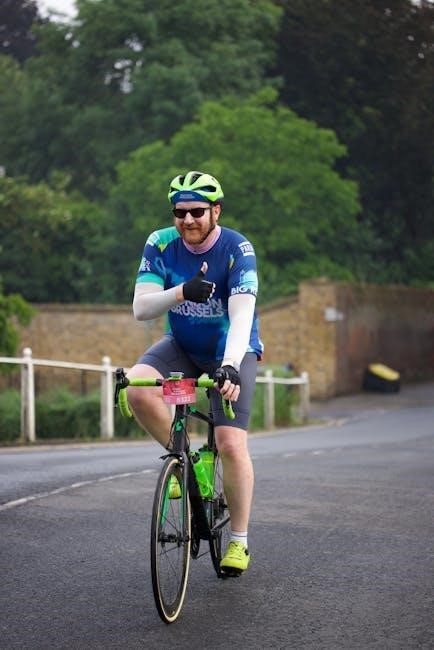
Exercise and Mental Health
Regular exercise enhances mental well-being by reducing stress, anxiety, and depression. It improves mood, boosts self-esteem, and enhances cognitive function, promoting overall psychological health and resilience.
Psychological Benefits of Regular Exercise
Regular exercise significantly enhances mental well-being by reducing symptoms of anxiety and depression. It improves mood through the release of endorphins, boosting self-esteem and confidence. Exercise also enhances cognitive function, including concentration and memory, while fostering resilience against stress. These psychological benefits contribute to a healthier mental state, promoting overall life satisfaction and emotional stability. By incorporating physical activity into daily routines, individuals can experience profound positive changes in their mental health and quality of life;
Exercise as a Tool for Stress Management
Exercise is a powerful tool for managing stress, as it reduces cortisol levels and promotes the release of endorphins, which improve mood and emotional well-being. Physical activity distracts from stressors, providing mental relief and enhancing problem-solving abilities. Consistent exercise fosters resilience, helping individuals cope with stress more effectively. It also improves sleep quality, further mitigating stress effects. By incorporating exercise into daily routines, individuals can better navigate stress and maintain psychological balance, enhancing overall mental health and well-being.
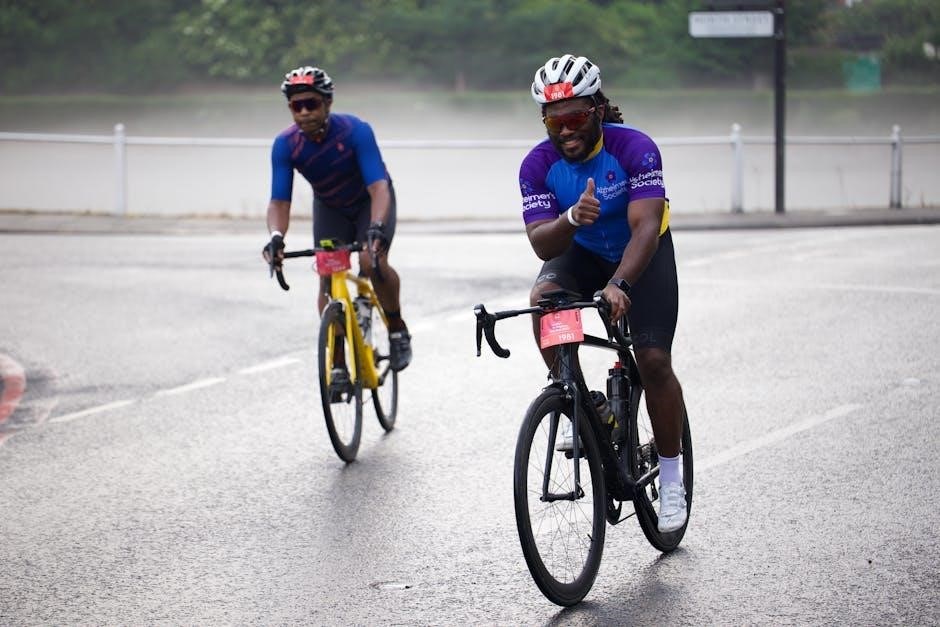
Career Opportunities in Sport and Exercise Psychology
Sport psychologists work in diverse settings, including education, healthcare, and sports teams, utilizing their expertise to enhance performance and mental well-being in athletes.
Roles of Sport Psychologists in Different Settings
Sport psychologists operate in diverse environments, including educational institutions, sports teams, and clinical settings. They work with athletes to enhance performance, address mental health issues, and foster resilience. In educational roles, they train future professionals, while in sports teams, they focus on team cohesion and performance optimization. Clinical settings involve mental health support, and private practice offers personalized consulting. Their expertise spans motivation, stress management, and injury recovery, making them integral to athlete well-being and success across various domains.
Education and Certification Requirements
Earning a degree in psychology, sport science, or a related field is essential for a career in sport and exercise psychology. Many professionals pursue graduate studies, with doctoral degrees often required for clinical or academic roles. Certification, such as becoming a Certified Mental Performance Consultant (CMPC), enhances credibility. Coursework typically includes psychology, kinesiology, and statistics. Practical experience through internships or applied work is also crucial for developing expertise in this interdisciplinary field.
Sport and exercise psychology continues to evolve, bridging research and practice to enhance performance and well-being. Its future holds promise for advancing mental and physical health globally.
Sport and exercise psychology explores the psychological factors influencing behavior, performance, and well-being in sports and exercise. It examines motivation, arousal, stress, and personality traits, providing insights into enhancing performance and mental health. The field bridges theory and practice, offering practical applications for athletes, coaches, and exercisers. Key concepts include goal setting, visualization, and feedback, which are essential for mental skills training. Overall, the field emphasizes the interconnectedness of psychological and physical processes, highlighting its importance in promoting optimal performance and lifelong physical activity.
The Future of Sport and Exercise Psychology
The future of sport and exercise psychology lies in advancing research, integrating technology, and expanding applications to diverse populations. Innovations like virtual reality and AI may enhance mental training tools. There will be a growing focus on mindfulness, grit, and emotional intelligence to optimize performance. The field will also address ethical considerations in consulting and promote inclusivity. As exercise’s role in mental health grows, psychologists will play a key role in designing interventions. Continued collaboration between researchers and practitioners will drive progress, ensuring the field remains dynamic and impactful.
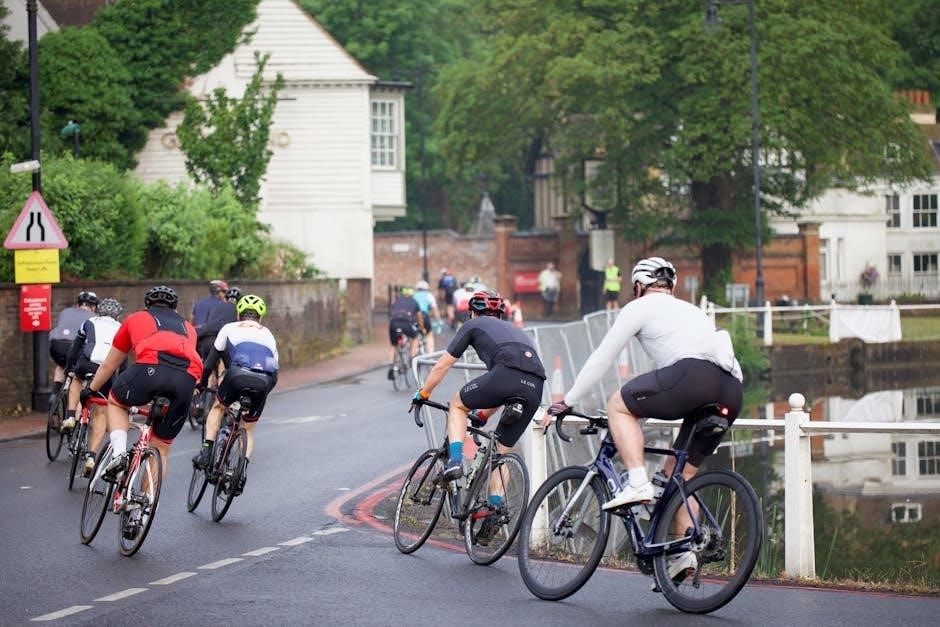










Leave a Comment